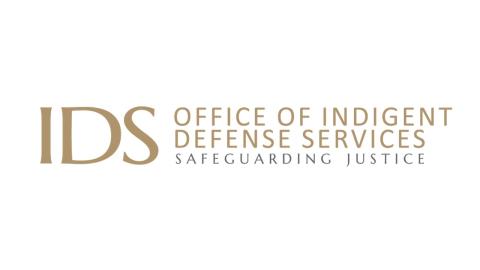Rate Increases for Private Assigned Counsel to Take Effect January 1, 2022
Article contents

On October 29, the Indigent Defense Services Commission voted to implement rate hikes for most classes of cases. The Commission’s vote was contingent on North Carolina implementing a state budget with increased funding for North Carolina Indigent Defense Services (NCIDS). The 2021 Appropriation Act (“the Act”), signed into law by Governor Cooper on November 18, included the needed increased funding.
The Act included line-item increases for the Private Assigned Counsel (PAC) fund. The projected additional availability for the fund is $6.8 Million – $5 Million in new funds and a projected $1.8 Million from an increase by $3 dollars to the Court of Justice fee assessed pursuant to G.S. 7A-305(a)(c1).
For the first time since the legislatively mandated rate cuts of 2011, the Commission was able to raise the district court rates from $55 to $65. While this does not restore the rate to its pre-2011 levels, it is the most significant step toward rate restoration that the Commission has been able to take so far.
A table with the applicable hourly rates is available on the NCIDS website.
Additional highlights about the new rates are summarized below.
Effective January 1, 2022, hourly compensation rates are as below:
- $100 – potentially capital and capital, including capital appeals and capital post-conviction work (provision counsel in capital will be paid at $85)
- $100 – Children charged with first degree murder, pre- and post-transfer, habitual violent felonies
- $85 – Non-potentially capital Class A-D felony whether disposed in the district or superior court; satellite-based monitoring “bring back” hearings; reviews of NGRI determinations; non-capital post-conviction where the most serious conviction was a Class A-D felony; non-potentially capital Class A-D felony; Non-potentially capital Class A-D felony appeals and appeals of satellite-based monitoring hearings
- $75 – Non-capital criminal or non-criminal appeals
- $65 – Class E-I felony or felony probation violation; all other cases resolved in superior court driving while impaired; Class A1 misdemeanor; Class E-I felony or felony probation violation; civil cases (abuse, neglect, dependency, termination of parental rights, child support contempt, civil contempt, and involuntary commitment proceedings); all other cases resolved in district court; Parole and post-release supervision revocation hearings; competency proceedings pursuant to Chapter 35A
There will be a proportionate increase in the non-hourly compensation for counsel providing representation pursuant to contracts and uniform fees. The precise increase for the uniform fees is forthcoming. The increases for a single unit under the contract system will increase as follows:
- Misdemeanor unit – from $17,500 to $21,700.00, or by $4,200.00
- Low-level felony unit – from $20,100 to $21,700.00, or by $1,600.00
- High-level felonies – from $27,100.00 to $29,000, or by $1,900
New contract rates will be included in February 2022 payments for cases to which attorneys were appointed on or after January 1, 2022. The greater increase in misdemeanor units reflects the fact that, despite modest increases for low- and high-level felony units, IDS has been unable to increase rates for these cases since the 2011 legislatively mandated rate cuts. Given the increase in unit value, DWIs and Class A1 misdemeanors to which attorneys are appointed on or after January 1, 2022 will no longer be entitled to an automatic extra .25 case credit.
For counsel providing representation to parents pursuant to contracts, the monthly rate of compensation will increase by 18%. For counsel providing representation to juveniles pursuant to contracts, the monthly rate of compensation will increase by 15%.
The new hourly rates are to be applied prospectively. In no case should it be applied retroactively. In other words, interim fee applications approved under the current rate will not be revisited even if the case is finally disposed or the date of the last appellate ruling is January 1, 2022 or later.
"The Commission and staff carefully considered how best to allocate the money and are committed to seeking recurring funding that will allow for hourly rates that reflect the value of the work performed on behalf of clients," stated Dorothy Hairston Mitchell, chair of the IDS Commission "We are grateful for the work that attorneys do for indigent clients."